How to choose the location for your shed |
||||||
 |
||||||
 |
||||||
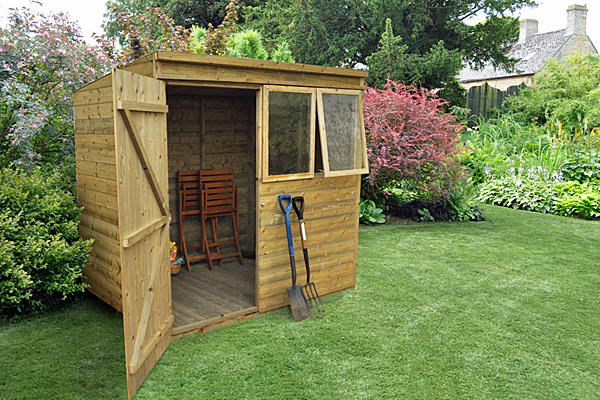 |
There are many factors to consider when choosing the location for your shed, so don't rush into a decision. It's a big investment and after all, you can't just plonk the shed down somewhere else if you change your mind afterwards. |
|||||
What's the shed for? |
||||||
| If you're going to be using the shed for hobbies or as a workshop, aim for a spot with plenty of natural light.
That won't of course matter if you're intending to use the shed mainly for storage. However, if you're planning to store large pieces of equipment, make sure there's enough space surrounding the shed door for easy access. |
 |
|||||
Things to consider |
||||||
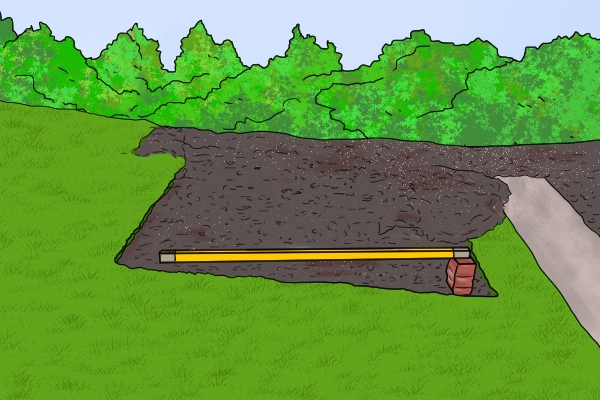 |
Level surfaceIt's advisable to erect your shed on a level part of the garden if at all possible. If the ground is uneven it will be very difficult to assemble the shed correctly: screw holes might not line up, walls may warp and doors might not fit their doorways properly. |
|||||
| If you have to put your shed on a slope, make sure you position the door on the side lowest to the ground so it's easy to get things in and out without having to install steps. | 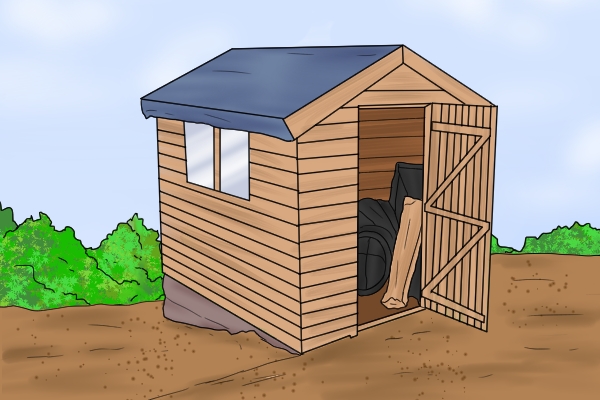 |
|||||
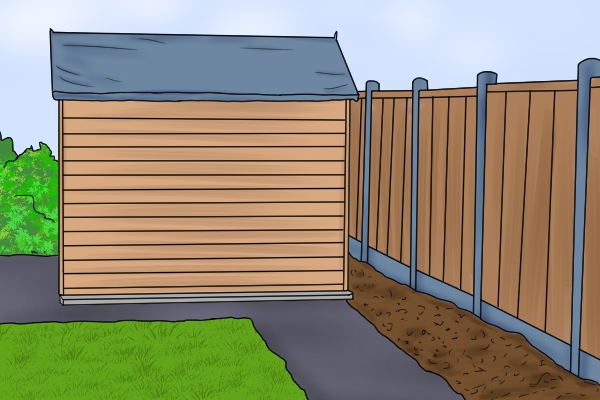 |
Surrounding spaceWhere possible, leave a 600mm (2ft approx) gap all around the shed so that you can get at the shed walls and any adjacent fence panels to apply treatments and carry out repairs. |
|||||
Position of sunKeep in mind the direction of the sun. If you're putting up a greenhouse or summerhouse, you will probably want to locate the building directly in its path. However, in summer a shed, workshop or office could soon become unpleasantly hot if the sun is beating down on it all day. |
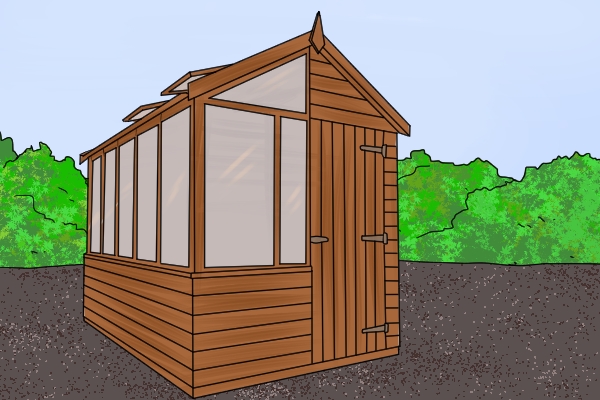 |
|||||
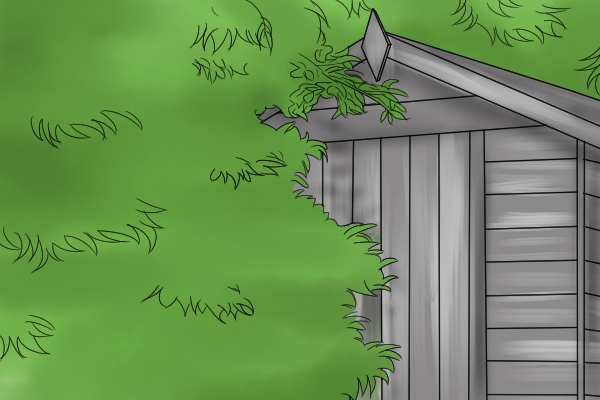 |
Overhanging treesTry to avoid putting your shed under overhanging trees or shrubs. The leaves and sap may cause the roof felt to deteriorate more quickly, and the building is more likely to suffer from damp. |
|||||
 |
||||||
AccessIt can get very muddy and wet in the winter, so locating the door of the shed next to a path is always a good idea. Alternatively, you could construct a path to the shed afterwards. |
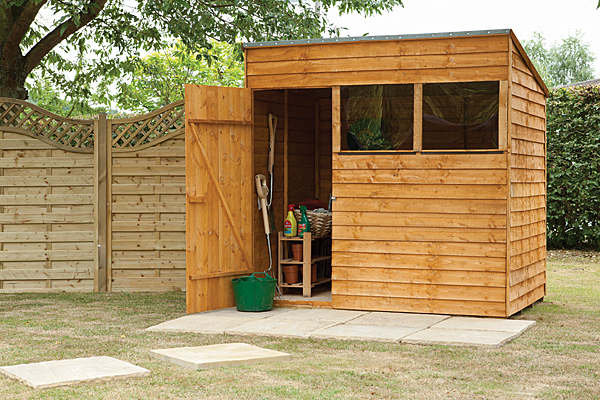 |
|||||
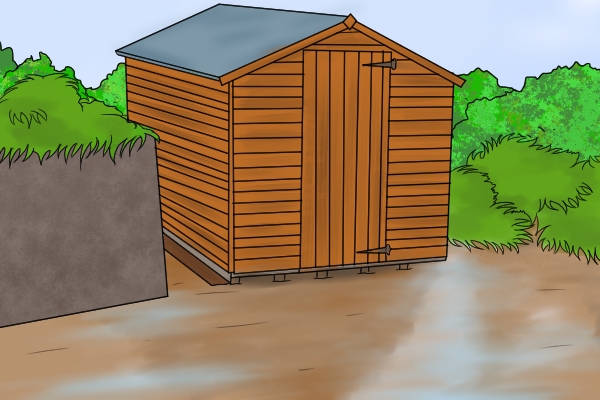 |
Ground conditionsAvoid placing your shed anywhere in the garden that becomes boggy in bad weather or is liable to flooding. No wooden shed, however well made, is completely proof against rising water! |
|||||
Power supplyIf you plan to use the shed as an office or for hobbies that require an electricity supply, you should think about how you can make lighting and power available. Positioning your shed near the house will make installation more straightforward. |
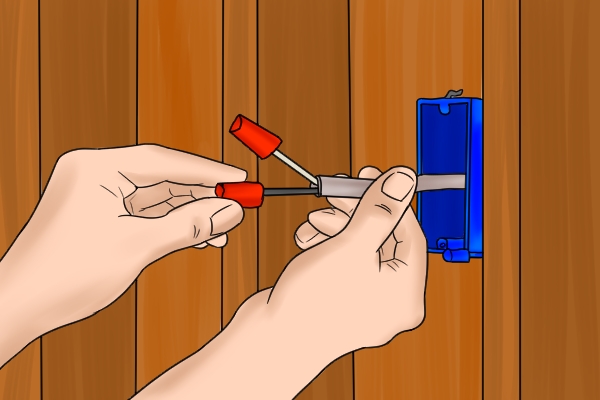 |
|||||
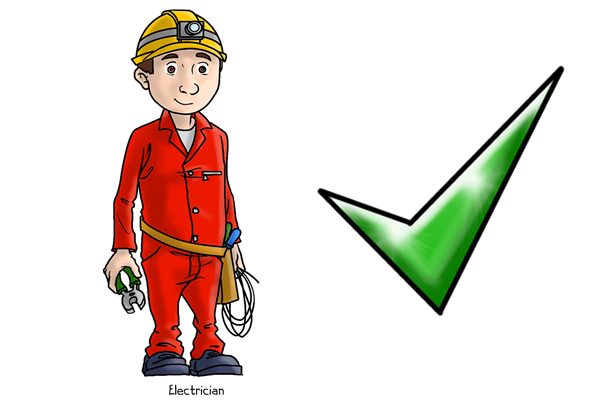 |
Many people decide to run electricity to their shed either by extension lead, overhead cable or by burying the cable in a sleeve in the ground. Installing electricity to a garden building is not a do-it-yourself job, and is certainly not recommended. Wonkee Donkee strongly advises employing a qualified electrician. |
|||||
SecurityThink about what is stored in your shed and how you can keep it safe. If you're concerned about possible intruders, try to position your shed where it is visible from the house, and fit locks and security lighting. Some sheds are supplied to keep your belongings safe from prying eyes. |
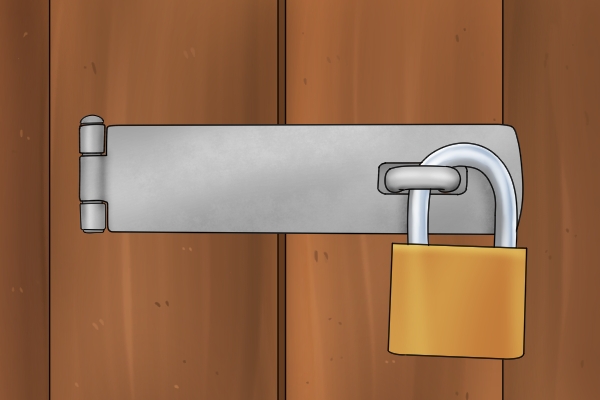 |
|||||
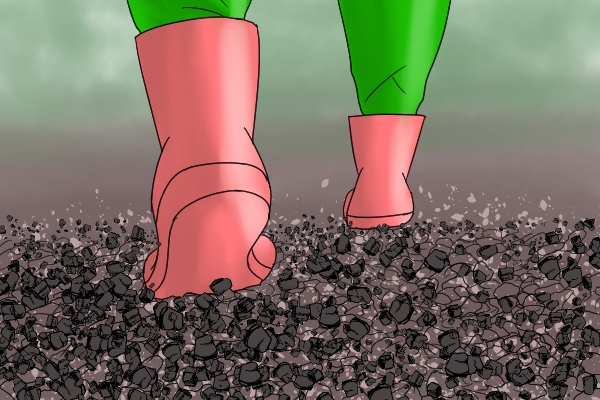 |
Even something as simple as spreading a layer of gravel around the shed can act as a deterrent, as it creates quite a noise when walked on. The gravel will also encourage rainwater to drain away, helping to keep the shed free from damp. | |||||
 |
||||||
 |
||||||







